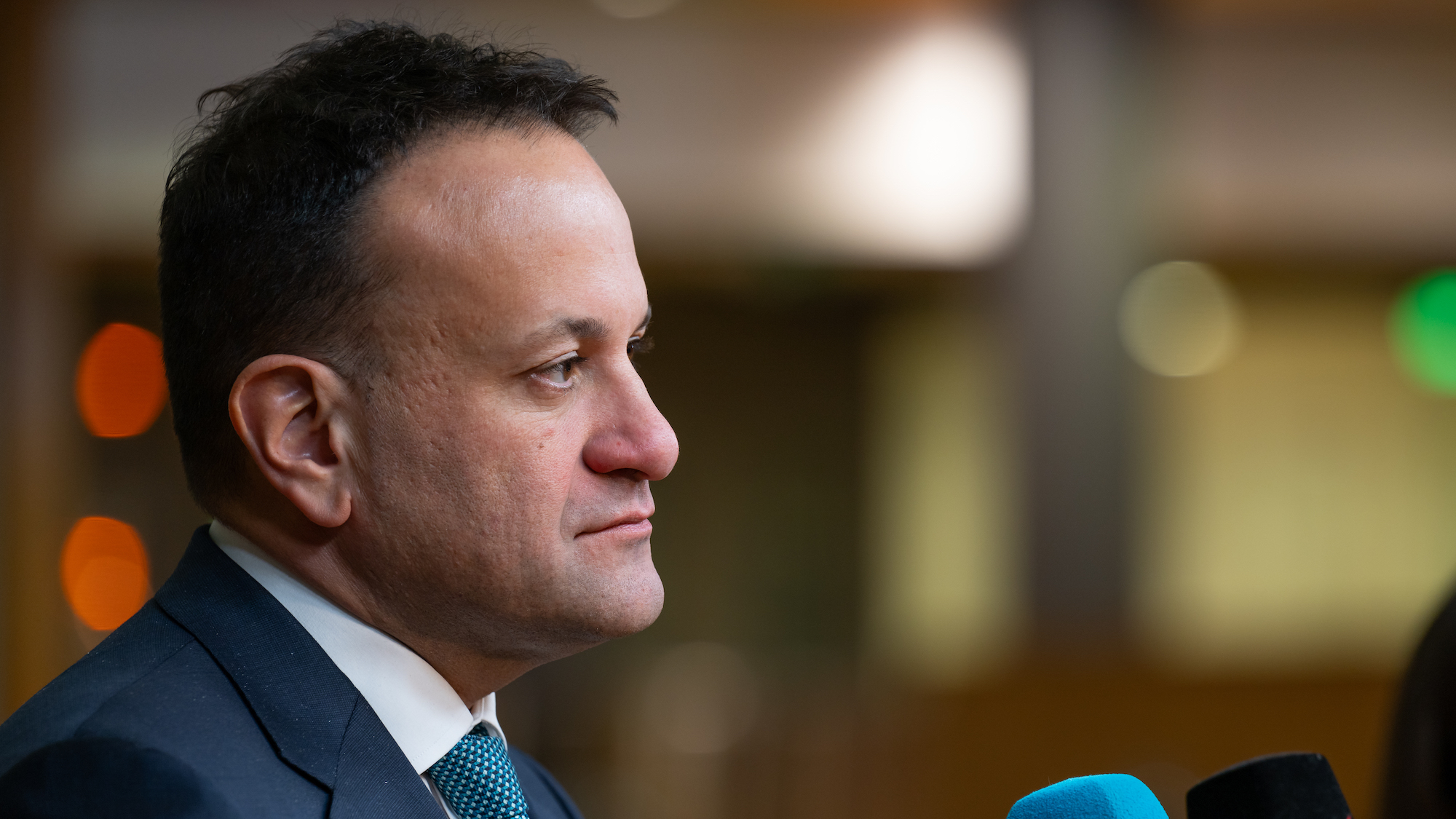Why is Ireland taking the UK government to court over Troubles legislation?
Legal action has sparked 'bitter diplomatic row' between the two nations

A free daily email with the biggest news stories of the day – and the best features from TheWeek.com
You are now subscribed
Your newsletter sign-up was successful
The Irish government has launched legal action against the UK in a bid to reverse a law that provides immunity for Troubles-related offences.
The controversial act, formally known as the Northern Ireland Troubles (Legacy and Reconciliation) Act 2023, was introduced by the British government in September despite opposition from politicians in Dublin and Belfast and from the families of victims.
Ireland has initiated an "interstate" lawsuit against the UK government in the European Court of Human Rights (ECHR), with Taoiseach Leo Varadkar saying his country had been left with "no option".
The Week
Escape your echo chamber. Get the facts behind the news, plus analysis from multiple perspectives.

Sign up for The Week's Free Newsletters
From our morning news briefing to a weekly Good News Newsletter, get the best of The Week delivered directly to your inbox.
From our morning news briefing to a weekly Good News Newsletter, get the best of The Week delivered directly to your inbox.
The act "effectively prevents prosecutions for serious crimes of soldiers as well as paramilitaries on both sides", said The Telegraph, with the British government giving amnesty for those who cooperate and provide information to an independent commission. It also ends any new inquests or civil actions related to the Troubles.
Ireland's subsequent legal action – which had received "the blessing" of US President Joe Biden – to challenge the bill has "plunged" the two nations into a "bitter diplomatic row", the paper added.
What the papers said
The UK government's position is that any prosecutions over the Troubles are "unlikely to succeed", said the Daily Mail, and an "independent body should be set up instead".
But Ireland is to argue that the new act is "incompatible with the UK's obligations" under the European Convention on Human Rights, and there is "consensus from both governments and parties in Northern Ireland" to push ahead with legal action.
A free daily email with the biggest news stories of the day – and the best features from TheWeek.com
Critics claim the act "removed access to justice" for victims' families, some of whom have "already taken action against the UK government at Belfast's High Court", said the BBC. But despite victims' groups and the Irish government opposing it "right from its conception", the move to instigate interstate legal action is a "big step", said the BBC's Julian O'Neill, and it "will not have been taken without evaluating political implications".
The UK government has persistently defended its decision to "legislate unilaterally", said the Financial Times, and has argued that it is "time to be realistic" about pursuing prosecutions. However, some human rights groups have said the law is a "barely concealed attempt to shield soldiers from prosecution".
The Northern Ireland secretary, Chris Heaton-Harris, said the lawsuit was "misguided" and the government would "continue robustly to defend the legislation". He added that the Irish government had not made a "concerted or sustained attempt" to pursue prosecutions and it had been "inconsistent" – something "Dublin disputes", said the FT.
The legal action has also sparked "renewed calls by the Right of the Conservative Party" for the UK to "reconsider its membership" of the European Convention on Human Rights, said The Telegraph. That is a response that Rishi Sunak has "tried to stave off while he tries to force through his Rwanda Bill".
European Research Group chair Mark Francois told the paper the bill had been "exhaustively debated" before being passed and should not be "overturned by an appeal to an activist foreign court".
What next?
A tense legal battle could have significant implications for relations between the UK and Ireland, and the prospect of "consequences for UK-Irish relations cannot be ruled out", said The Independent.
DUP leader Jeffrey Donaldson told the BBC that it was difficult to see how the legal case would improve relations between the nations and accused the Irish government of double standards, saying it had "no proposals to deal with the legacy issues".
The UK government is adamant that it will successfully defend the legislation in court, but doubts have been cast over whether the ECHR will agree with its legitimacy. Law professor Kieran McEvoy of Queen's University Belfast told the FT that he could see "no way" and "no chance" that the European court would "find that amnesty to be lawful".
The lawsuit may end up not being necessary, the paper added, as Labour leader Keir Starmer has "vowed to repeal" the law "if the party wins the UK general election expected next year".
Richard Windsor is a freelance writer for The Week Digital. He began his journalism career writing about politics and sport while studying at the University of Southampton. He then worked across various football publications before specialising in cycling for almost nine years, covering major races including the Tour de France and interviewing some of the sport’s top riders. He led Cycling Weekly’s digital platforms as editor for seven of those years, helping to transform the publication into the UK’s largest cycling website. He now works as a freelance writer, editor and consultant.